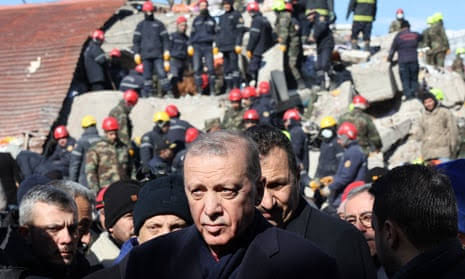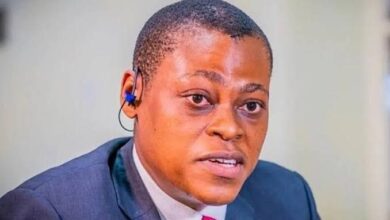News
Turkish president Erdogan admits errors with earthquake relief effort as death toll surpasses 12,000

Turkish president Tayyip Erdogan has admitted there were problems with his government’s initial response to a devastating earthquake on Monday in southern Turkey and Syria, that has killed over 12,000 people amid anger from those left destitute and frustrated over the slow arrival of rescue teams.
Erdogan said on a visit to the disaster zone on Wednesday February 8 that operations were now working normally and promised no one would be left homeless.

Across a swathe of southern Turkey, people sought temporary shelter and food in freezing winter weather, and waited in anguish by piles of rubble where family and friends possibly still lie buried.


Many Turks have complained of a lack of equipment, expertise and support to rescue those trapped even as they constantly hear cries for help.
There were similar scenes and complaints in neighbouring Syria, whose north was also hit by Monday’s huge quake.
Syria’s ambassador to the United Nations admitted the government had a “lack of capabilities and lack of equipment” but blamed this on more than a decade of civil war in his country and Western sanctions.
The death toll from both countries was expected to rise further according to the WHO as hundreds of collapsed buildings in many cities have become tombs for people who had been asleep in their homes when the quake hit in the early morning.
According to reports, many in the disaster zone had slept in their cars or in the streets under blankets, fearful of going back into buildings shaken by the 7.8 magnitude tremor – Turkey’s deadliest since 199.
The confirmed death toll rose to 9,057 in Turkey on Wednesday. In Syria, the death toll climbed to at least 2,950 by late Wednesday, according to the government and a rescue service operating in the rebel-held northwest.
Erdogan, who has declared a state of emergency in 10 provinces and sent in troops to help, arrived in Kahramanmaras to view the damage and see the rescue and relief effort.
Speaking to reporters, he said;
?We will be better tomorrow and later. We still have some issues with fuel … but we will overcome those too.?
Later, he condemned criticism of the government’s response. “This is a time for unity, solidarity. In a period like this, I cannot stomach people conducting negative campaigns for political interest,” Erdogan told reporters on his arrival in the southern province of Hatay.
Erdogan will contest for the presidency during in May, an election that will be seen as the toughest fight of his two decades in power.




